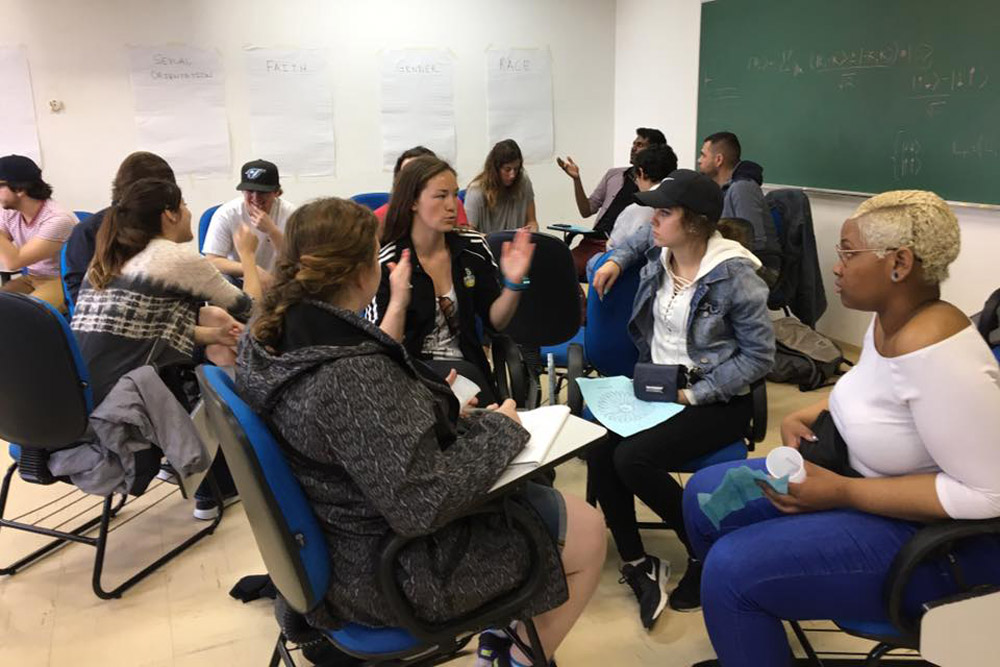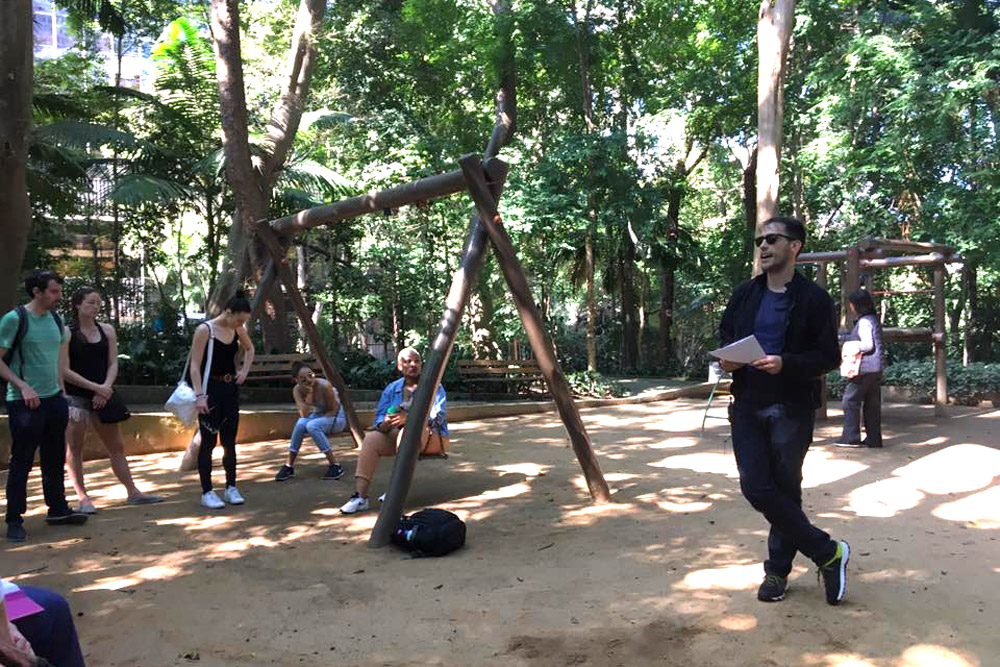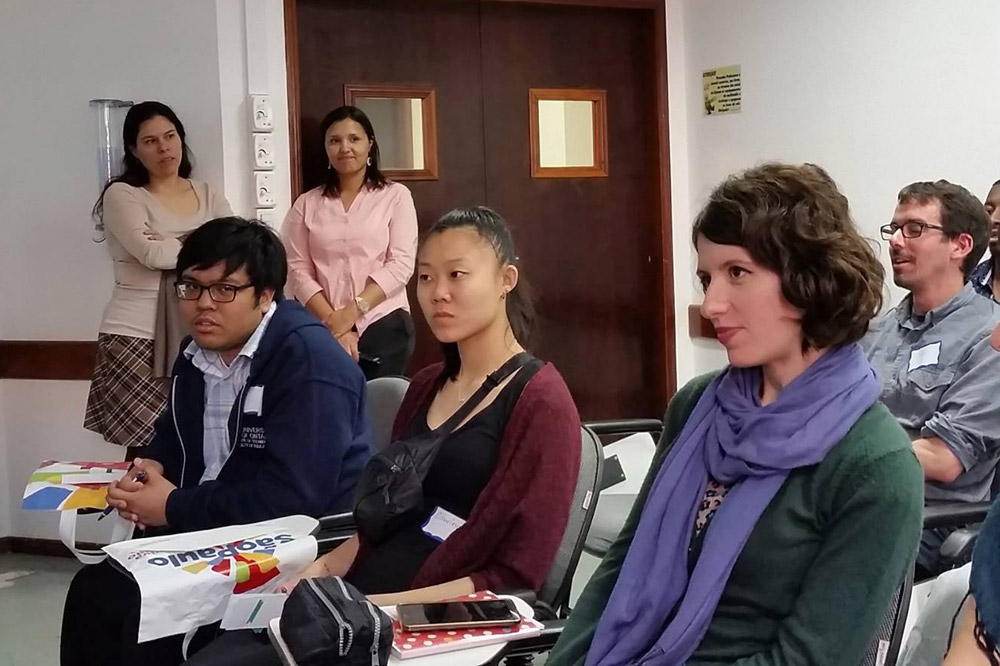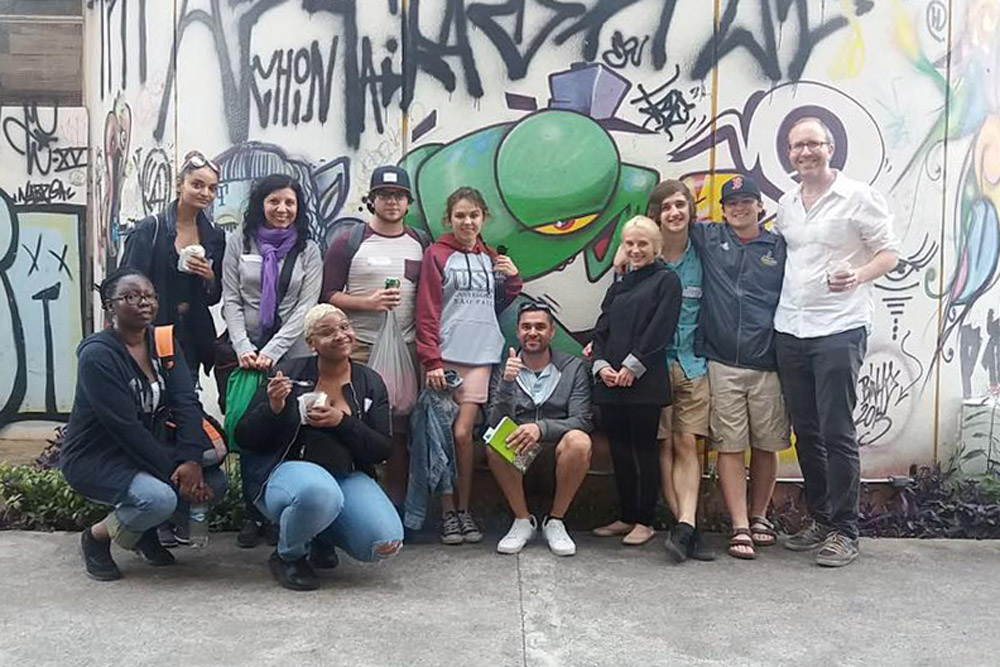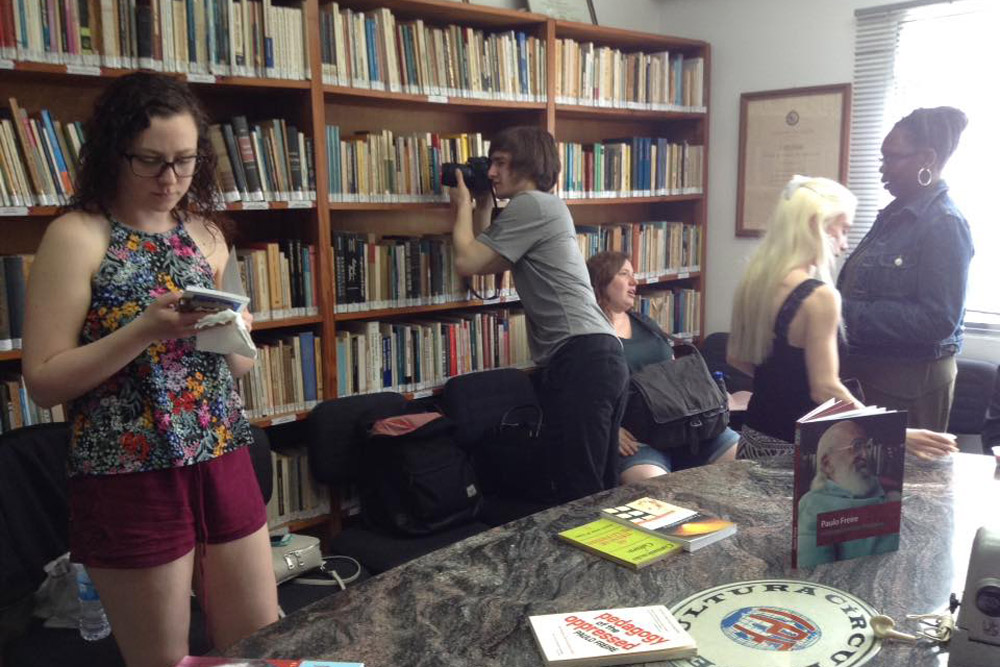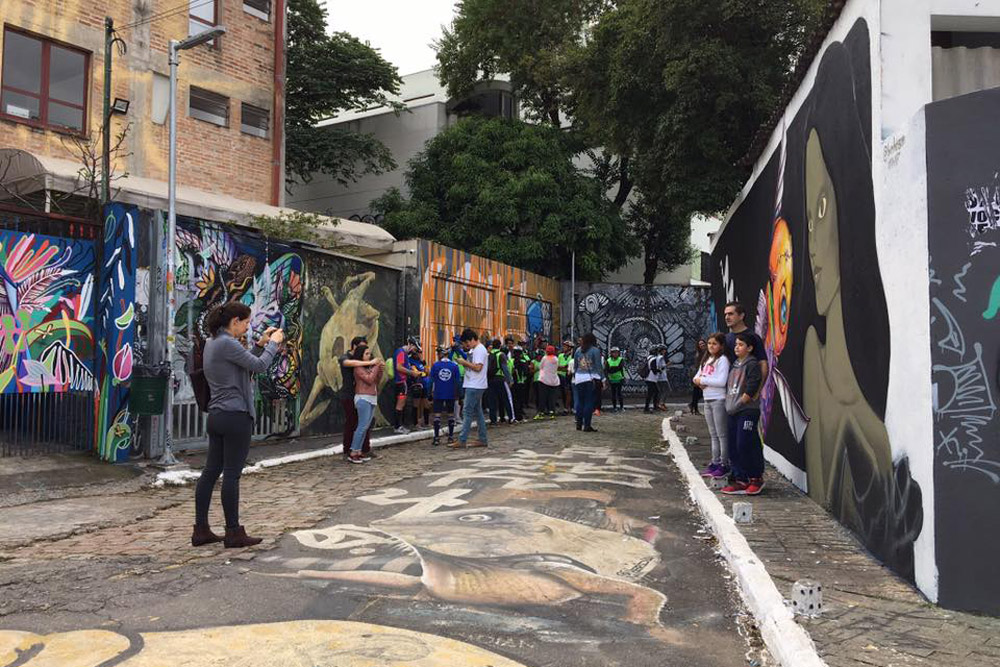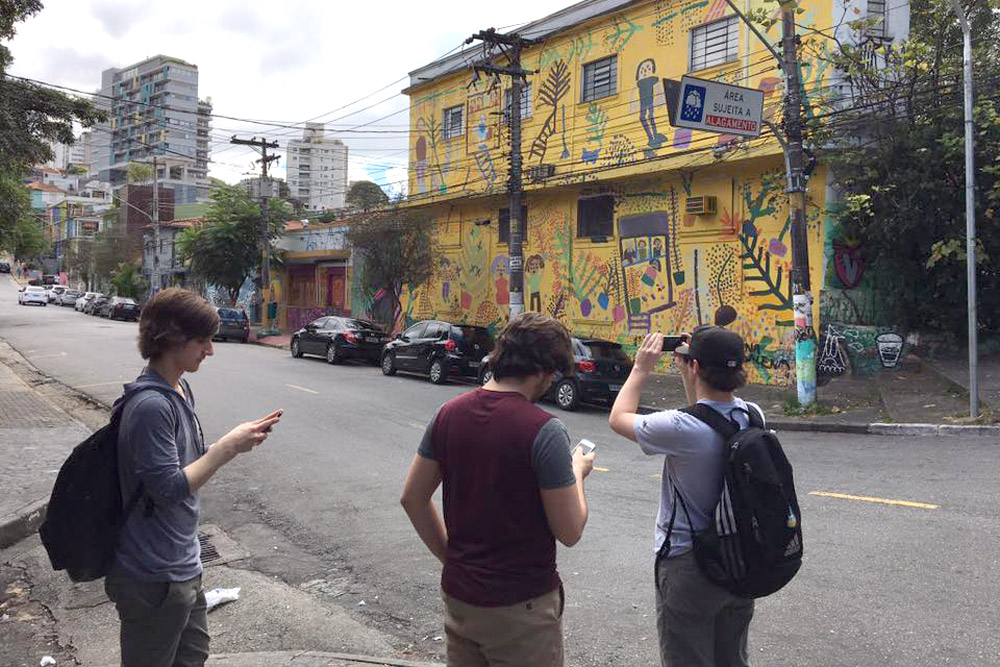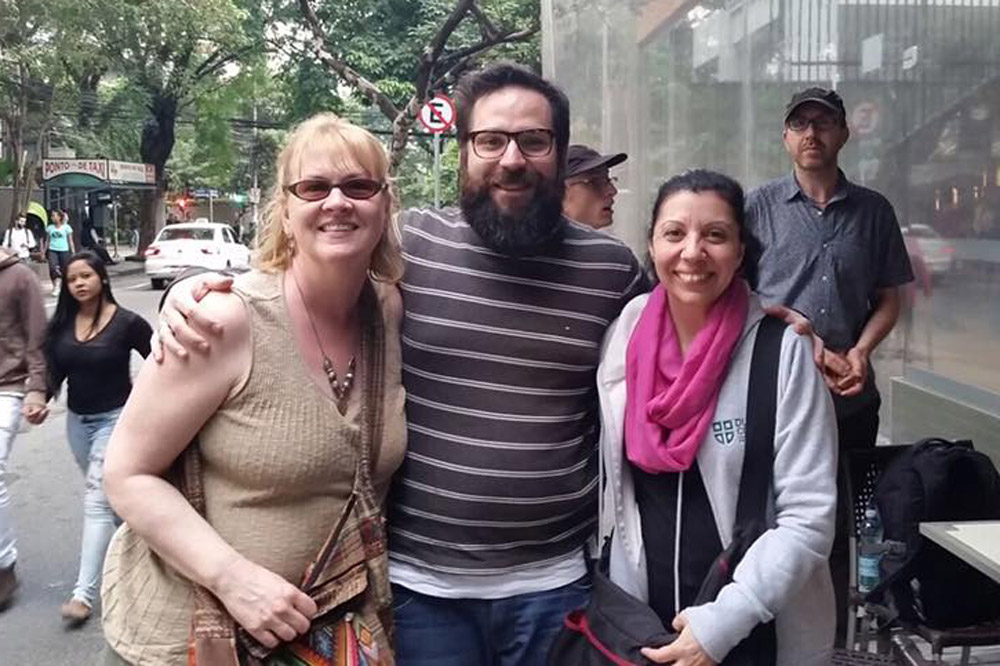University and college students learn how poverty affects education access
Hands-on learning gained through field course in Brazil
September 26, 2017
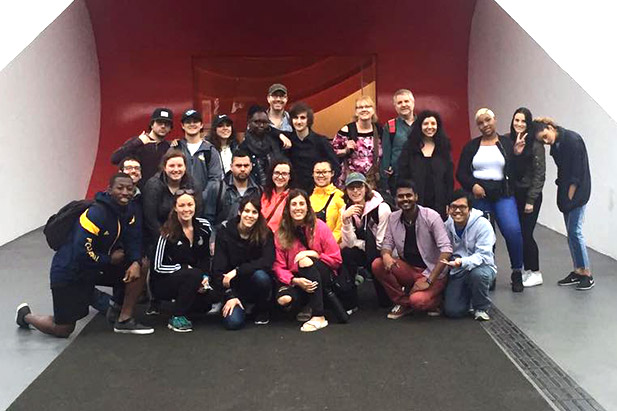
Numerous international studies show a direct correlation between poverty and access to education.
One of the most well-known scholars in this research area, Brazilian educational philosopher Paulo Freire, grew up in a family of low socio-economic status and experienced hunger as a child during the Great Depression.. In his many texts, Freire reflects on how poverty seriously impacted his ability to learn in school. His experience helped him formulate a philosophy of education called ‘critical pedagogy’, which exposes the weaknesses of an educational system that, by design, is unable to meet the needs of students outside of the middle class. His book, Pedagogy of the Oppressed, is considered one of the most important texts on this topic.
It’s one thing for post-secondary students to learn about Freire’s theories through lectures or textbooks. But what if they could see his theories play out in real life—in his country of origin? A group of University of Ontario Institute of Technology and Durham College (DC) students recently did that during a recent 10-day field course in São Paolo, Brazil.
The course, entitled Poverty, Access Resistance and Resilience in Latin America, was made available this past spring to the university’s Bachelor of Education students as well as students in the college’s School of Interdisciplinary Studies. The course was backed by the Innovative Initiatives Fund (IIF), a program that supports collaborative initiatives proposed by faculty and staff at the university and college. The university’s International office and English Language Centre, as well as the college’s International office, were also collaborators.
Allyson Eamer, PhD, of the university’s Faculty of Education, and Anna Augusto Rodrigues, a faculty member in DC’s School of Media, Art and Design, came up with the idea for the field course. With the support of both the university’s and college’s International offices, Dr. Eamer and Rodrigues applied to the IIF with their idea—and were successful in seeing their project funded.
Brazil as the perfect location
“While we initially looked broadly at Latin America as a site for the field course, we settled on Brazil because of its significance to critical pedagogy, as Freire’s homeland,” Dr. Eamer explains. “Critical pedagogy is highly relevant for our teacher candidates, who need to be able to question the assumptions and biases they might inadvertently bring into the classroom with respect to socio-economic disparities and racial and cultural differences. They also need to know how to teach their students to do the same.”
To make the course better fit with IIF’s mandate of joint university-college projects, Dr. Eamer and Rodrigues decided to broaden its focus to appeal to students in a variety of programs.
“Brazil has a long and important history of street art, and Paulo Freire’s theories have been used in art and media research, so this course seemed like a natural fit for my students,” explains Rodrigues, who is currently completing her PhD research on street art as an educational tool.
Learning in the field
Course participants found themselves immersed in an environment where they engaged with social justice issues in diverse communities, and collaborated with learners from different backgrounds in a rich global learning initiative.
The course included visits to:
- Escola de Aplicação de Faculdade de Educacio, Universidade de São Paulo, a primary and secondary public school run by Universidade de São Paulo’s Faculty of Education (FEUSP).
- Memorial da Inclusão (Museum of Inclusion)
- Paulo Freire Institute
- São Paulo State University
- University of São Paulo
- Beco do Batman (Batman Alley, a São Paulo neighbourhood famous for its street art)
“One of the highlights for all of us was the time we spent at the Freire Institute,” says Dr. Eamer. “We met with Freire’s son Lutgardes, who shared many stories of his childhood, and allowed us to peruse his father’s notebooks and texts. Students left there inspired and energized to incorporate these values into their future professions as teachers, journalists and broadcasters.”
“The ‘Curriculum in the City’ was a unique aspect of this field course,” adds Rodrigues. “It provided an opportunity for students to learn outside of a traditional classroom by bringing to life lessons on, for example, gender equality and decolonization as we walked around São Paulo.”
Select student testimonials:
"The opportunity to travel to Brazil to study the educational philosophy of Paulo Freire and its application to the 21st-century Ontario classroom will forever set the University of Ontario Institute of Technology’s innovative and progressive Bachelor of Education program apart from the others. The most enriching part of this experience was the discussion, collaboration and partnership fostered with the University of São Paulo’s Masters of Education students. The whole experience has informed my professional understanding and commitment to anti-oppression, inclusion, equity and diversity in the classroom, as well as cemented my core-beliefs in sound pedagogy.”
- Luxshan Ambigaibagan, Primary/Junior teacher candidate, Faculty of Education, University of Ontario Institute of Technology
"Going on the Brazil field course had to be one of the best decisions I've ever made. Every aspect was phenomenal and really opened my eyes—from learning about Paulo Freire and his life's work, to learning basic Portuguese, exploring São Paulo and learning about Brazilian history. I would love to do it all over again and I encourage anyone in broadcasting or any program to take this course. This opportunity could be life-changing—trust me, you wouldn't want to miss out."
- Breanna Harley, second-year Broadcasting—Radio and Contemporary Media Program student
Helpful links:
- Youtube video with field course highlights
- FEUSP article about the students’ visit
- Article on Paulo Freire Institute website about the students' visit (Portuguese)
